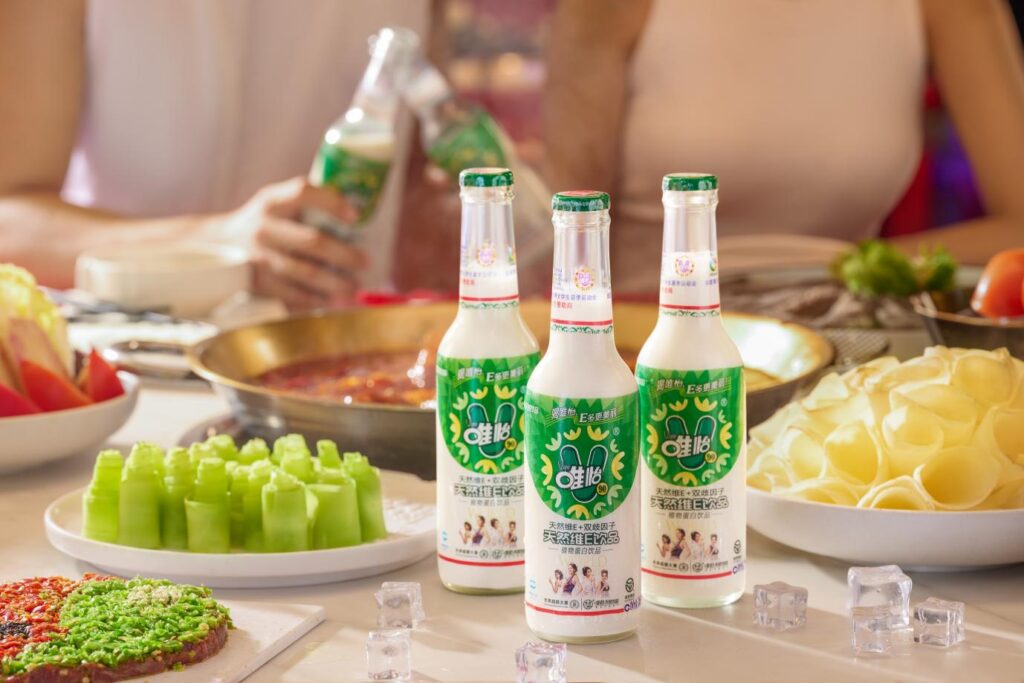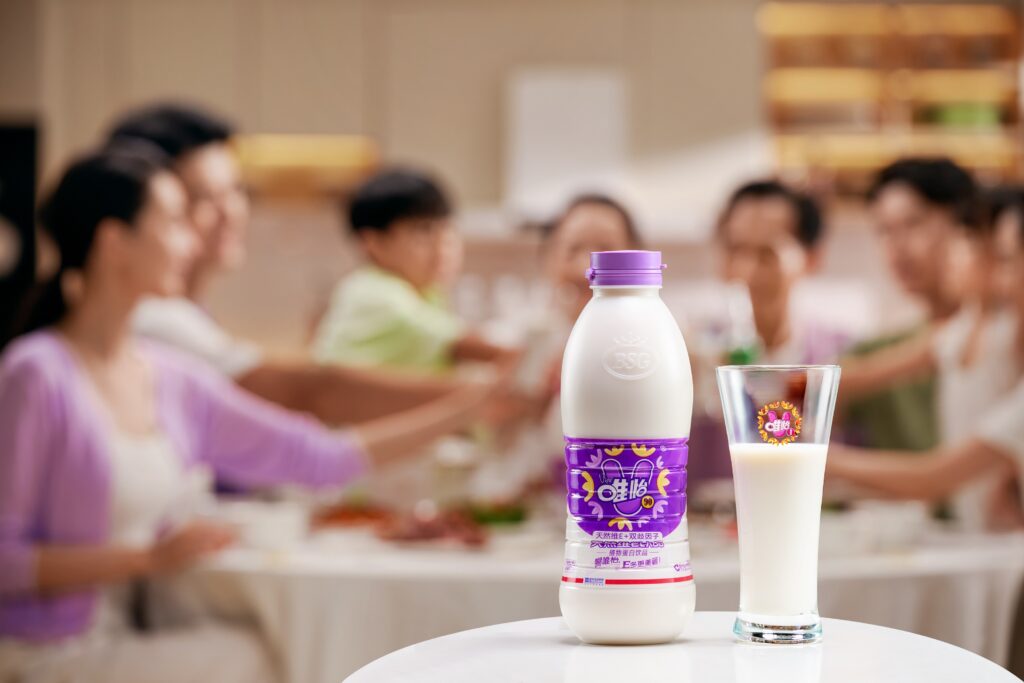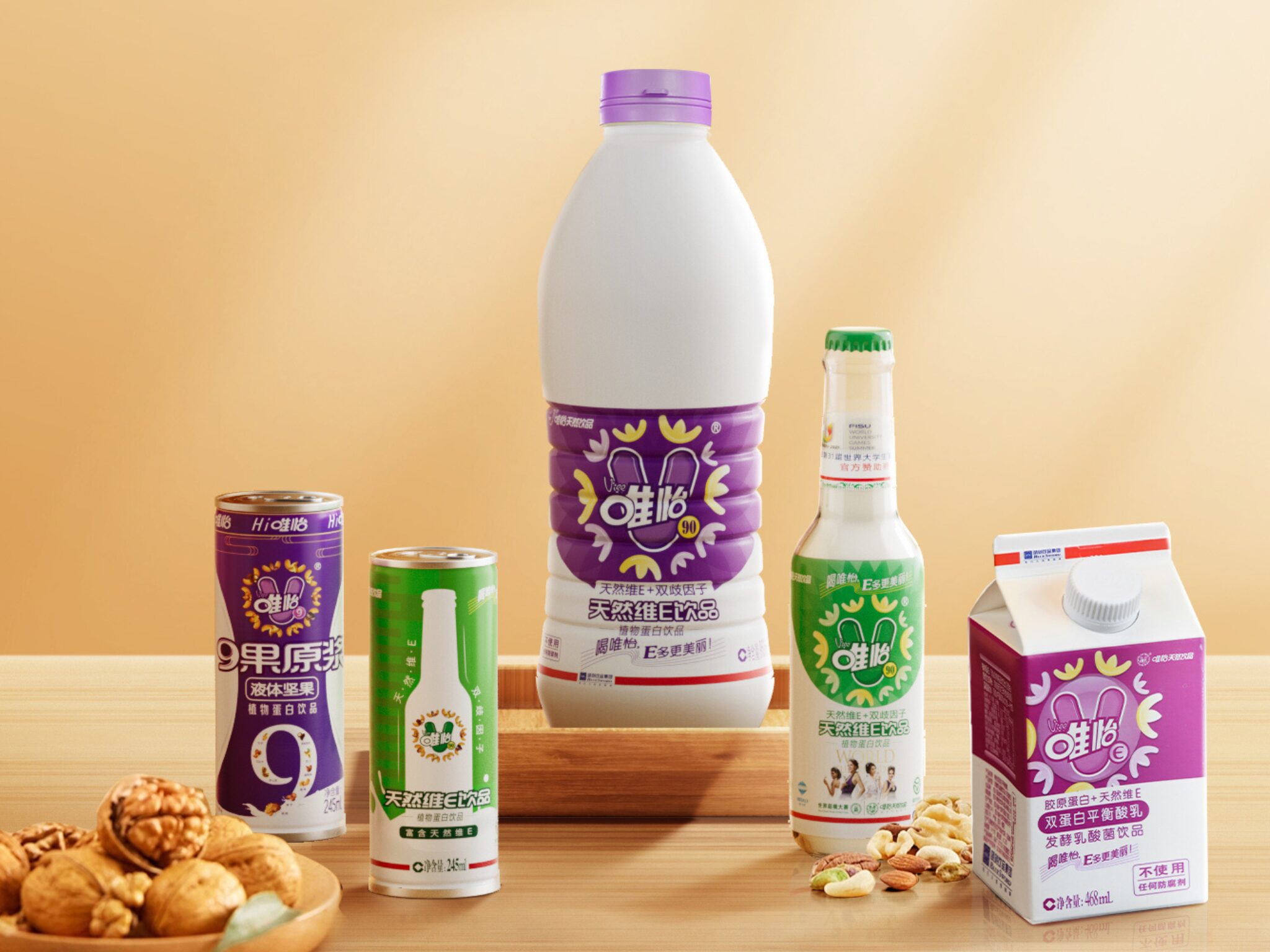Chinese Plant-Based Dairy Giant Viee Gets Private Equity Backing for ‘Spice-Neutralising’ Beverages
4 Mins Read
One of China’s largest plant-based beverage companies, Viee, has received an undisclosed sum in private equity funding from L Catterton.
Sichuan Viee Beverage Food Co., which describes itself as the largest plant-based drinks maker in western China, has received an investment from L Catterton.
Viee makes plant-based dairy drinks from nuts and oats, which are intended to complement the spicy cuisine typical to its home regions of Sichuan and Chongqing. The details of the deal were not disclosed, but the financing will help the brand solidify its foothold in these areas.
L Catterton, which claims to be the world’s “largest and most experienced consumer-focused private equity group”, said its strategic investment will also help Viee grow its presence in adjacent provinces, and expand nationwide.
Spice-neutralising alt-dairy drinks bring commercial success for Viee

Viee was established in 1992 and has become a staple for locals in western China. Its signature portfolio of alt-milk beverages and drinkable yoghurts are made primarily from peanuts and walnuts and contain vitamin E and bifidus factor. Additionally, it has a line of oat and soy milk products in flavours like ginger, jasmine, osmanthus, pine nut, and sesame.
The company’s drinks have been classed as spice and grease “neutralisers” for spicy dishes characteristic of Sichuan and Chongqing. They’re available at over 550,000 points of sale in these regions, and their popularity has made Vie the “top-selling non-carbonated, non-alcoholic beverage brand” here, according to L Catterton.
Viee has leant on its additive- and preservative-free formulations to appeal to China’s increasingly health-conscious population, and has been rewarded with “best-in-class” repeat purchase rates in its home region, and higher traction in the nearby provinces of Shaanxi, Guizhou and Yunnan, the private equity firm said.
“By working together to solidify our lead in Sichuan and Chongqing, and further penetrate the market in adjacent provinces as well as the rest of China, we believe that we will be better able to enrich our target customers’ lives, providing them with tasty and nutritious beverages which they enjoy,” said Viee founder representative Yawen Guo.
Scott Chen, managing partner at L Catterton’s Asia fund, praised Viee’s “vertically integrated supply chain and wide network of distributors”. He added: “Earnings have been on a clear uptrend and hit a record high in 2023, attesting to consumers’ enduring demand for Viee through market cycles. The company has a proven management team and we look forward to working closely with it to unlock further value.”
Health high on the agenda in China’s food and beverage sector

The investment in Viee comes as health becomes the main focus for China’s consumers post-Covid, with the government prioritising more nutritious food products as part of its Healthy China policy.
A recent report by GlobalData found that low-calorie soft drinks grew by nearly 40% from 2022-23, as Chinese citizens look to healthier beverage options. “Amplified health awareness following the Covid-19 pandemic pushed more people towards healthier lifestyles and encouraged them to reduce their consumption of sugary beverages,” the report suggested.
Health is also the main driver of plant-based food consumption in China, with 46% of consumers saying so in a poll published in June. This was followed by nutrition (39%). The research revealed that 98% would eat more vegan food if they were told of its advantages, and among the top 10 benefit statements they agreed most with, seven were related to health.
Meanwhile, a 2023 report by Asymmetrics Research stated that plant-based milk brands are highlighting attributes like ‘no sugar/cholesterol/trans fat’, ‘good for brains/eyes’, and ‘high protein/calcium’ on product packaging, alongside cleaner labels.
L Catterton cited data indicating that China’s market for beverages consumed alongside food is expected to hit $60B by 2028, owing to a hike in dining out and the use of meal delivery services over at-home cooking. Non-alcoholic drinks are also encroaching upon alcohol’s share in foodservice, thanks to rising demand for healthier drinks and natural ingredients, especially among Gen Zers.
Responding to these trends, Nestlé recently introduced six new coffee lines in China, two of which were vegan ready-to-drink beverages and boast attributes like low sugar, low fat, and high fibre.
“L Catterton has a keen understanding of our industry and business,” said Guo. “We are impressed by the comprehensive value creation plan that the firm has devised for Viee and are excited about executing it in partnership with them.”



